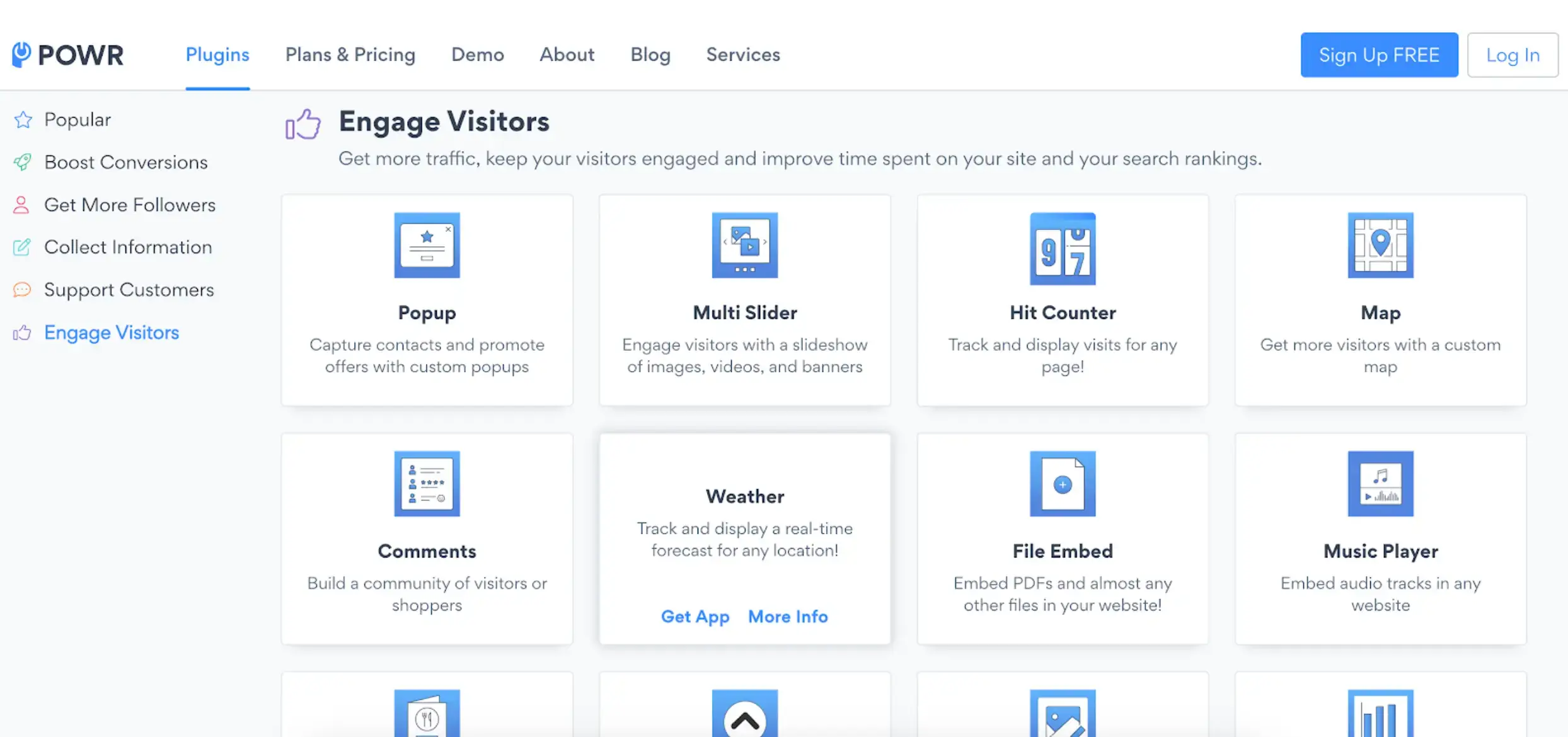With so many online businesses competing in the digital space, it's hard to stand out and provide exceptional experiences. That is precisely where AI tools step in.
Capable of automating processes, analyzing data, and making intelligent decisions, Artificial Intelligence can revolutionize the very core of e-commerce operations. AI for eCommerce has opened up opportunities to create personalized and engaging experiences for your audience.
From generating comprehensive product descriptions and offering personalized product recommendations to having AI chatbots take charge of a majority of customer interactions, there are several avenues through which AI tools can significantly enhance the preview product packaging, contributing to an improved eCommerce website user experience.
In this article, we'll explore how.
Practical Ways to Use AI to Improve eCommerce Website UX
- Crafting content that sells with AI
- Generating and editing product and website images
- eCommerce video marketing with AI
- Engaging your website visitors with AI chatbots
- Personalized product recommendations using AI-powered tools
The market for Artificial Intelligence in E-Commerce is projected to grow to $16.5 billion by 2030 from $5.1 billion in 2021.
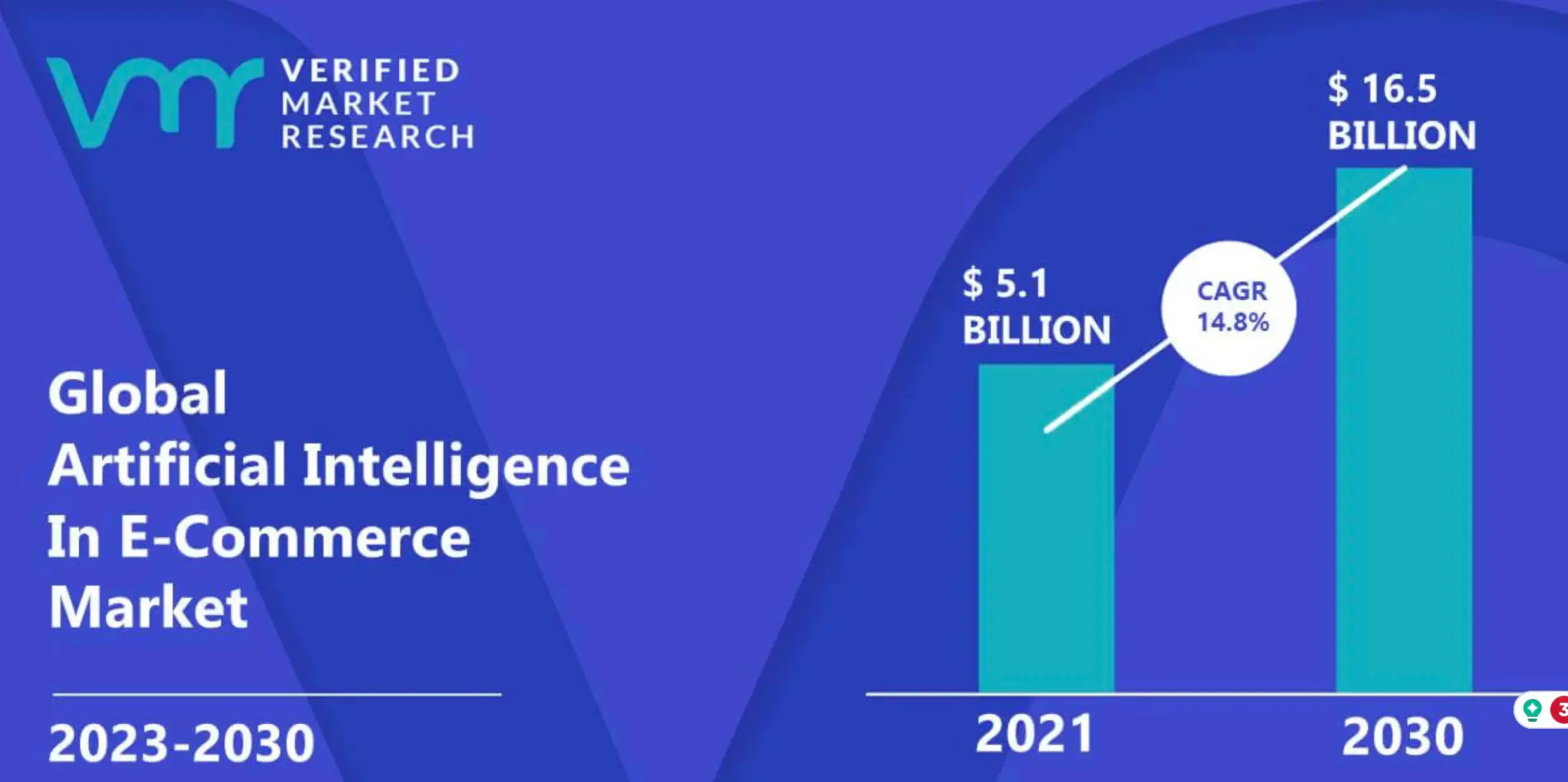
It is a clear indicator of the growing interest in AI for eCommerce.
A report has found that many online sellers find AI tools for eCommerce incredibly useful for enhancing their business operations.
We've compiled this guide if you're new to AI eCommerce and need help figuring out where to get started. Here are five practical ways to use AI to improve your eCommerce website UX and AI tools that could help you along the way.
1. Crafting content that sells with AI
If you want to outshine your competition, you need to create captivating content for your eCommerce website that is also SEO-friendly.
AI copywriting tools can help accelerate the content creation process.
They can assist you in crafting compelling product descriptions, web copy, landing pages, blogs, and more for your eCommerce store.
Narrato is an AI content creation platform with a powerful AI copywriter that uses natural language processing and machine learning to generate quality content. There's a bulk AI product description generator to generate hundreds of product descriptions in one go. For blog content, there's the AI article writer.
There's an AI keyword and SEO content brief generator for SEO needs. And for other miscellaneous needs, there's an AI summary generator, an AI image generator, and 100+ other AI content tools and templates.
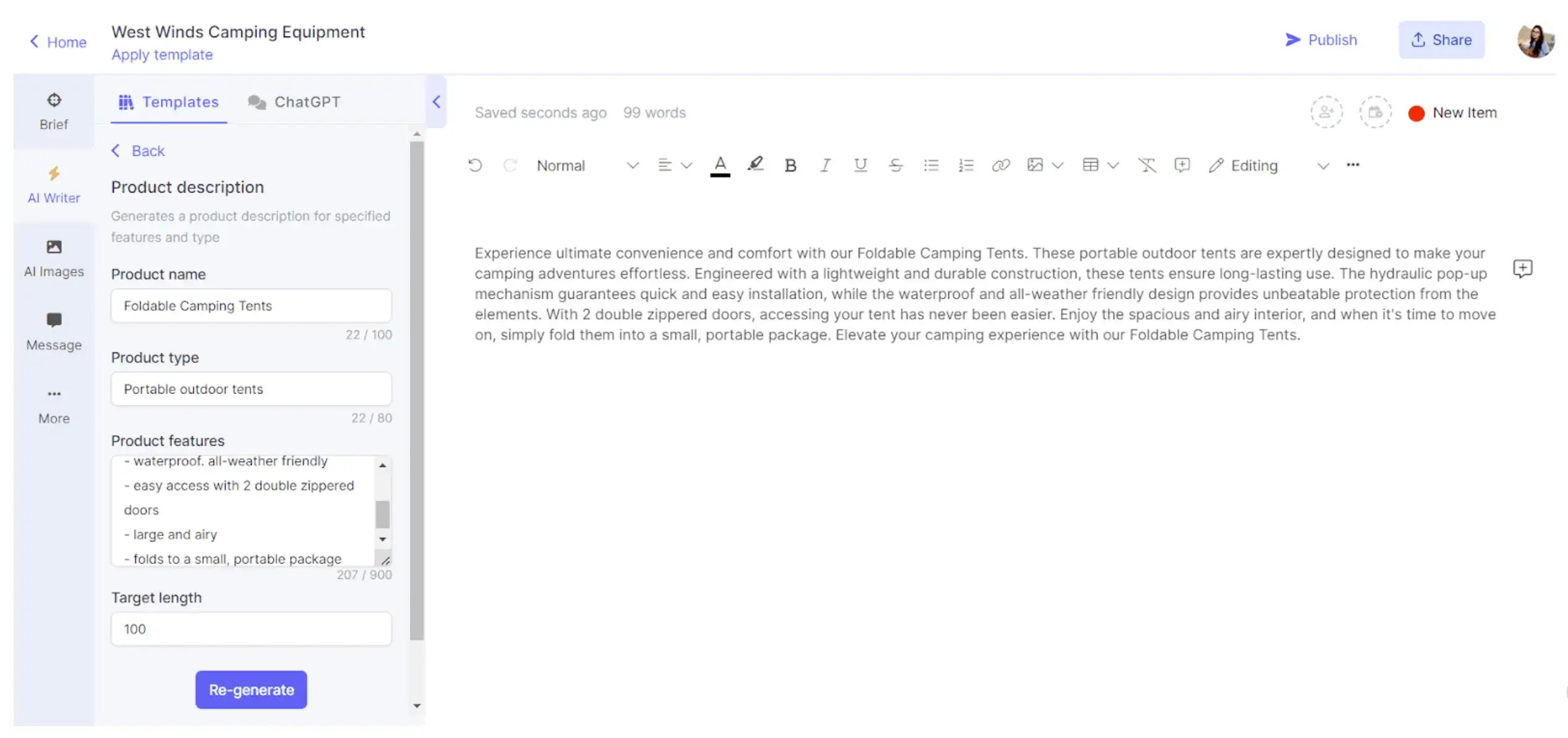
Narrato also has tons of other tools like the AI Content Genie - the content creation autopilot that generates social media posts and blog posts from just your website URL and themes every week.
There are also powerful content project management and collaboration tools to help you manage your content operations in one place.
The idea of using an AI copywriting tool is simple: To outsource the bulk of the copywriting work to AI. It could save tons of time, which you could spend on other important marketing tasks.
The AI writers can also provide you with new and unique ways to approach a copywriting task, improving the quality of the content on your website and providing a better UX to website visitors.
2. Generating and editing product and website images
The way you showcase your products online has a direct impact on how website visitors perceive your brand. It can also influence their purchase decisions.
But for a relatively new eCommerce store that is operating on a small budget, hiring a graphic designer may be out of the question.
If you're in a similar predicament, AI-enabled image/art generation, editing, and enhancement tools are just what you need.
Professional image editing and advanced tools like AI photo editors create more refined, reliable, and flawless results by leveraging expertise and automation to enhance image quality.
These solutions offer precise adjustments, color corrections, and retouching, ensuring the final product looks polished and visually appealing.
In contrast, non-professional image editing, often done without advanced tools or techniques, tends to produce amateur results that lack the finesse, accuracy, and visual impact of professional work, leaving images looking less attractive and less polished.
The use of generative AI is not just limited to text generation. AI can also help create visual content and make your website more attractive to customers. First are the AI image generators, which convert text input to custom images for your marketing needs.
Pixel art, a digital art form popularized by early video games, has seen a resurgence in recent years due to its nostalgic and minimalist charm.
Despite its simple appearance, pixel art requires a deep understanding of shading, color placement, and precision to bring characters, landscapes, and objects to life with limited resolution.
For anyone interested in mastering this art form, learning how to do pixel art can be both a rewarding creative challenge and an effective way to produce visually distinctive content.
Popular tools include DALLE-2, Midjourney, Stable Diffusion, and Craiyon. Narrato, the AI text generator we discussed above, also has an AI image generator, plus image and GIF search options.
To create product mockups using AI images, start with a free AI image generator like Craiyon, which can generate photos, drawings, and art in any style you specify.
But remember, the quality of your output all comes down to how well you craft your image-generation prompt. That is why it's essential to be as descriptive and detailed as possible when crafting your AI image prompt.
Craiyon also comes with an option to add "negative words". Specifying any word in this category will ensure that you do not incorporate that into the AI-generated image.
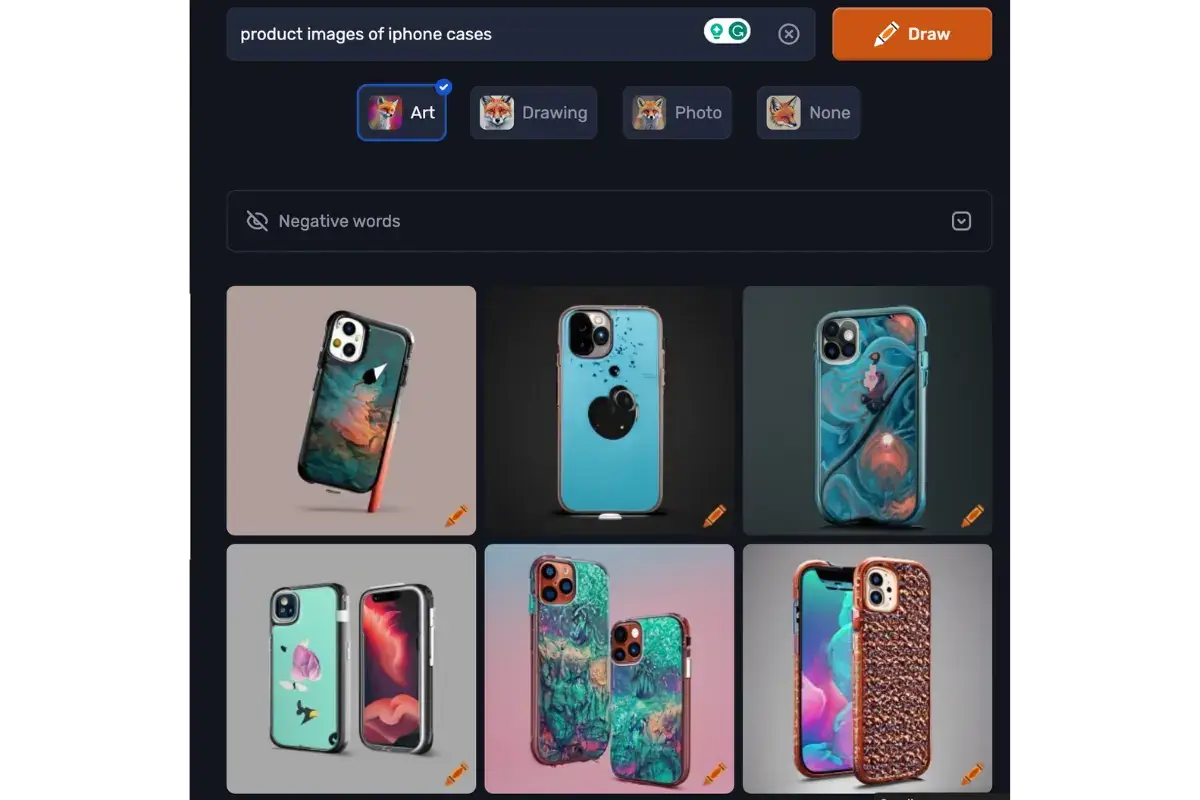
If you want a tool to help you retouch and edit your eCommerce product images, you should try VanceAI. Canva, a popular graphic designing platform, has excellent AI features to help you create graphics, images, or anything else for your eCommerce website.
3. eCommerce video marketing with AI
For eCommerce businesses, having an omnichannel marketing strategy is the key to success.
You should be running ads on social, using blog content to boost SEO, promoting your products through emails... the list goes on. But you will miss out if you're not investing in video marketing.
According to a 2023 Wyzowl report, almost 96% of marketers consider video a vital part of their marketing strategy.
Why wouldn't they? Videos in e-commerce stores offer a more precise preview of products than basic product images.
The same Wyzowl report has found that 96% of video marketers believe that using video marketing has resulted in a better understanding of their product or service among users.
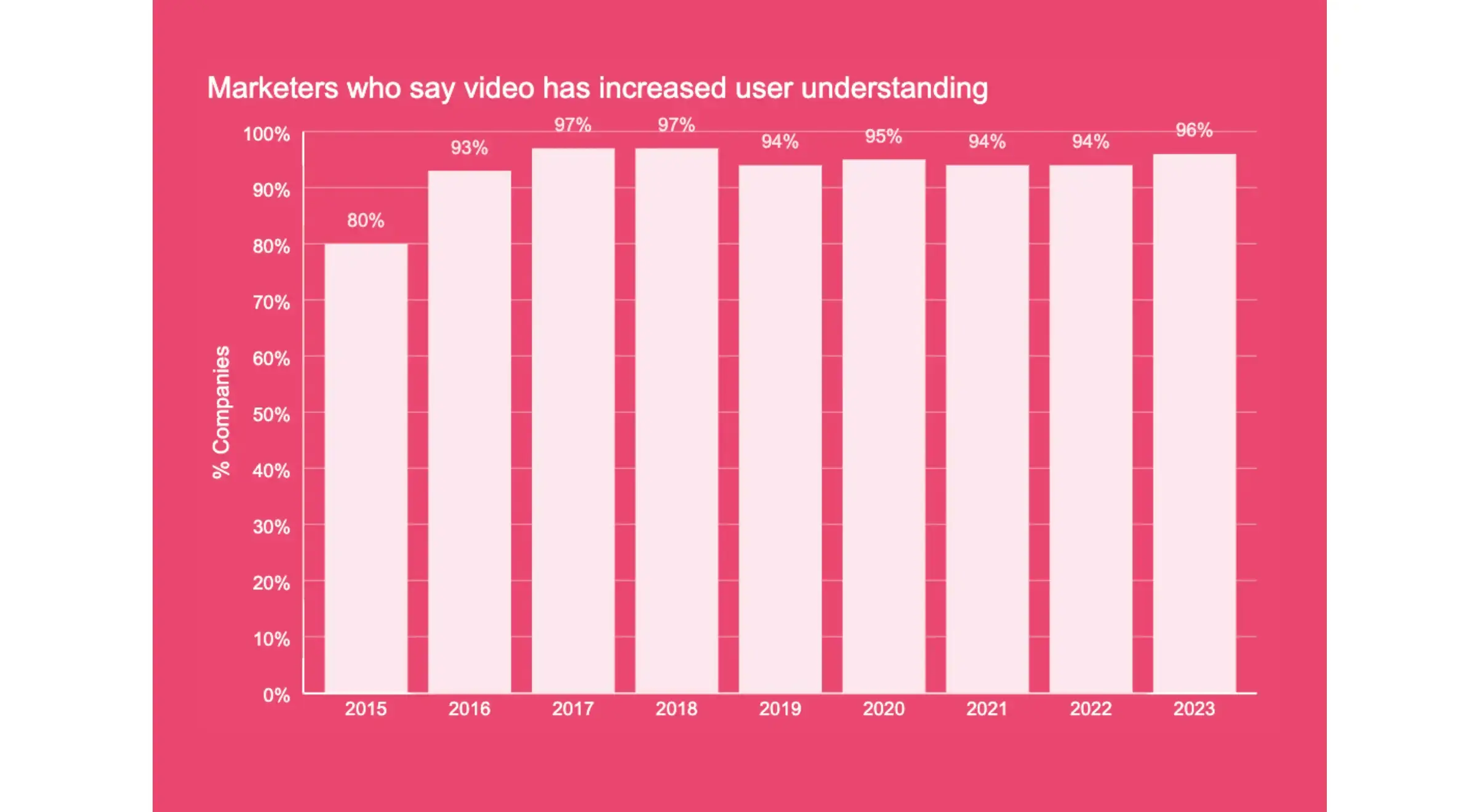
So, if you plan to invest in video marketing, it's a step in the right direction.
With AI tools to help you, creating video content will be manageable, too. InVideo is one AI video creation platform that could be a good choice for anyone getting started.
Determining the best AI video editor depends on factors such as user preferences, editing features, and ease of use, making it essential to explore various options to find the most suitable tool for individual needs.
The USP of this AI tool is that it can convert any idea into video.
You have to provide a few specifics about what you want, and it will generate a video complete with a script, voiceover, music, auto captions, and more. It also lets you edit videos using text prompts, making video production much simpler and more efficient.

Predis.ai is another AI tool that could help you in eCommerce video marketing. This tool allows you to select products directly from your catalog to convert them into videos with the help of AI.
It also suggests appropriate captions and hashtags to go with the videos.
You can further personalize these videos using the creative video editor and the social media scheduler to post them on social platforms.
4. Engaging your website visitors with AI chatbots
Delivering outstanding customer service is a non-negotiable for e-commerce businesses today.
The modern customer expects speedy replies to their queries, swift handling of their issues, and perhaps even a shopping assistant to help them navigate your website. AI-powered chatbots and virtual assistants have emerged as invaluable tools to meet the growing demands of customers.
A conversational marketing AI chatbot simulates a human assistant, engaging with website users to address inquiries and deliver customer support in real-time.
The best part is that these AI chatbots are available to your users 24/7. They are fantastic tools to scale your business and enhance customer satisfaction without breaking the bank.
What sets AI chatbots apart from rule-based chatbots is that they learn from each customer interaction.
They use Natural Language Processing techniques to comprehend and respond to user queries while learning from their inputs through Machine Learning.
The Tidio AI chatbot is built explicitly for eCommerce businesses.
It analyzes and categorizes customer questions, creating responses tailored to each category. Doing so automates 73% of customer inquiries, providing clear and conversational answers.
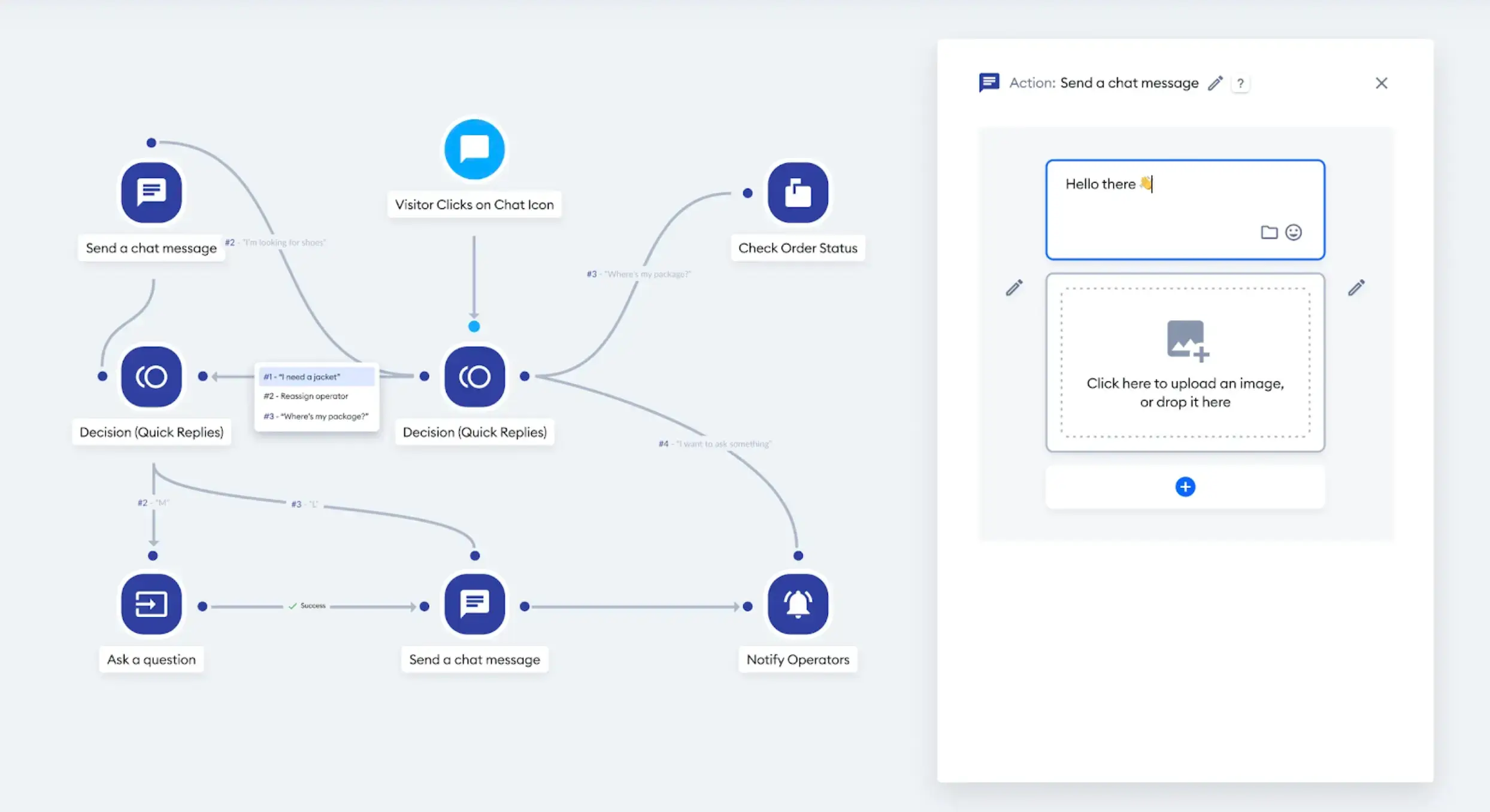
It also comes with a chatbot builder with drag-and-drop functionality, allowing you to create personalized chatbot workflows by specifying actions, triggers, and conditions.
POWR also has some great web apps to help you engage your website visitors.
Create custom popups, build a comment section, add a sale promotion bar, and do much more.
With the POWR editor, you can customize the appearance of your app to perfectly match your brand's style, seamlessly integrating it into your website.
5. Personalized product recommendations using AI-powered tools
The ability to personalize customer experiences on your website is the thing that will set your brand apart from the competition.
Businesses can use AI-powered product recommendation engines to build stronger customer connections, improve sales, and foster brand loyalty.
The key is to provide personalized product suggestions that match individual preferences and shopping patterns. Innovations in generative AI for sales have further enhanced these capabilities, allowing for even more sophisticated and tailored recommendations.
Dynamic Yield has an AI recommendation platform employs AdaptML™ (advanced deep learning recommendation system). This tool predicts the most suitable series of products for each shopper across different channels and touchpoints.
It also helps implement recommendation strategies tailored to a user's position in the purchase funnel and their specific attributes, like whether they're a first-time or VIP customer.
All of this helps in creating a cohesive shopping experience for the user.
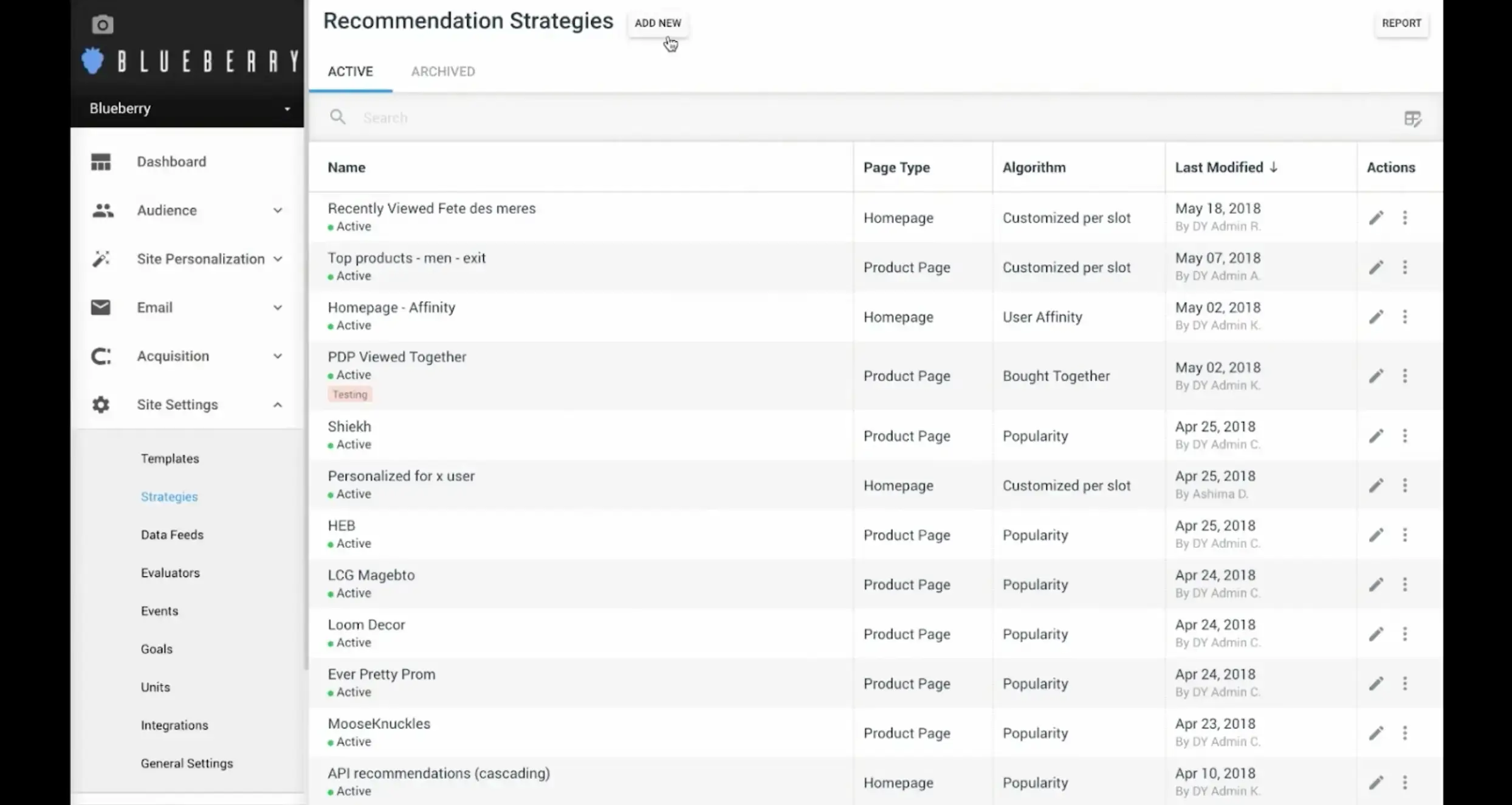
Coveo AI is another e-commerce product recommendation engine for your online store. This tool goes beyond just following merchandising rules.
It aims to thoroughly understand the connections between products, including their different versions, and combines this knowledge with insights about the shoppers. The tool provides precise recommendations when they are most needed.
Wrapping Up
That wraps up our deep dive into some practical tactics for improving your e-commerce website UX with the help of AI tools.
While unique, flashy website features may initially catch a user's attention, the simple stuff matters for long-term satisfaction and repeat business.
Leveraging the power of AI, you can take the core components of your website to the next level, providing high-quality content, personalized experiences, and sophisticated automation for the seamless online shopping journey your customers crave.
You can enhance this experience even further with POWR web apps. Engage customers, boost conversions, get more followers, target followers, and support customers.
There are targeted apps for each purpose. Try them out today, and tell us about your experience.
Author Bio
Akshita Sharma is a content creator, with a penchant for turning complex topics into engaging and informative articles. Buffer, The Next Scoop, Writesonic, Benchmark Email, and Sujan Patel are just a few of the top brands that she has written for.



